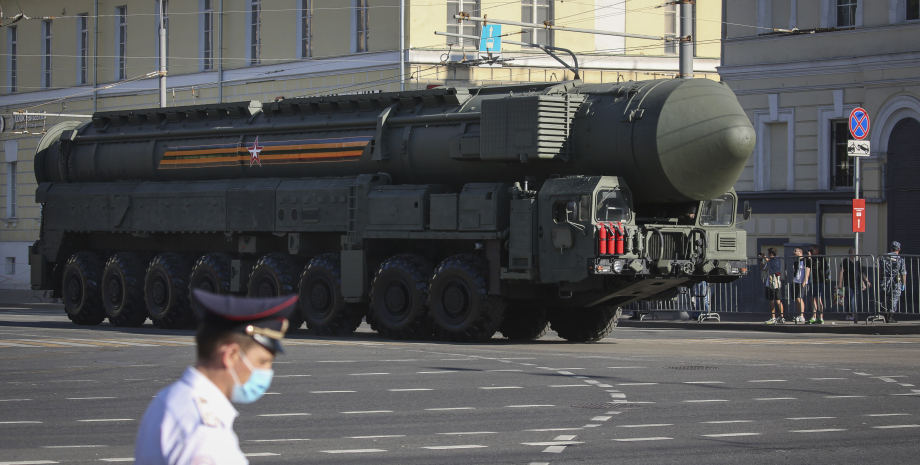
 By Natali Moss
By Natali Moss
Signed by the first President of the Russian Federation Boris Yeltsin and the 42nd President of the United States Bill Clinton on January 14, 1994, the Moscow Declaration is only political in nature, the Ministry of Foreign Affairs of Russia said. "These agreements are political in nature and do not create any legal obligations for the parties. They are not international treaties on the content of the Vienna Convention on the Law of International Treaties in 1969.
The procedure for their termination or denomination is not department. Russia's nuclear doctrine requires continuous restraint against individual states and military coalitions that Moscow considers a potential opponent, said the Foreign Ministry. "They view the Russian Federation as a potential opponent and have nuclear weapons or other types of weapons of mass destruction, or significant combat potential of general purpose forces," officials continued.
The principle of nuclear restraint, according to the statement, involves maintaining the constant readiness of the selected part of nuclear forces and means ready for combat use. The Russian authorities are firmly committed to the principle of inadmissibility of nuclear war, because it cannot be winners, summed up in the ministry.
During the first official visit of Bill Clinton to Moscow, on January 14, 1994, the parties approved the Moscow Declaration, which records an agreement on the refusal of Russia and the US to target strategic nuclear missiles. A similar agreement between Moscow and London was approved on February 15, 1994. Yeltsin and Clinton agreed to implement the Declaration by May 30, 1994.
The United States said three of the four strategic missile systems Trident I, Trident II and Peacekeeer will not contain target data. And the old Minuteman III missiles are set up for targets around the ocean. Former commander -in -chief of rocket troops of the Russian Federation Igor Sergeyev on May 30, 1994 said that zero flight tasks were introduced into Russian intercontinental ballistic missiles.
It should be reminded that after the start of a full -scale war with Ukraine, Russian President Vladimir Putin transferred strategic nuclear forces to a special regime of combat duty. A year later, Moscow suspended the US Agreement on measures to further reduce and limit strategic offensive weapons (DSU). Russia also transferred tactical nuclear weapons to Belarus. Belarusian leader Alexander Lukashenko will not be allowed to control this arsenal, the Western specialties are confident.










All rights reserved IN-Ukraine.info - 2022